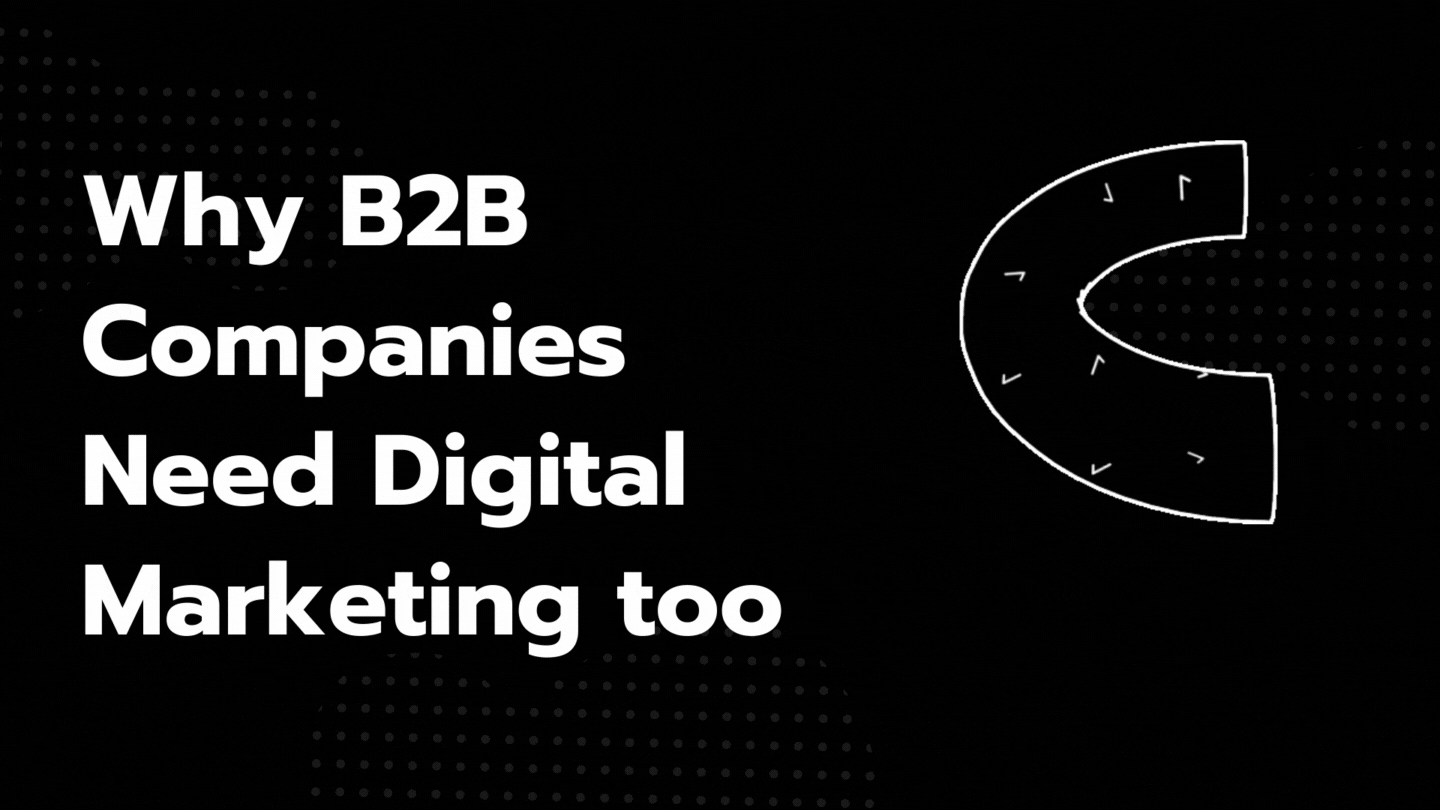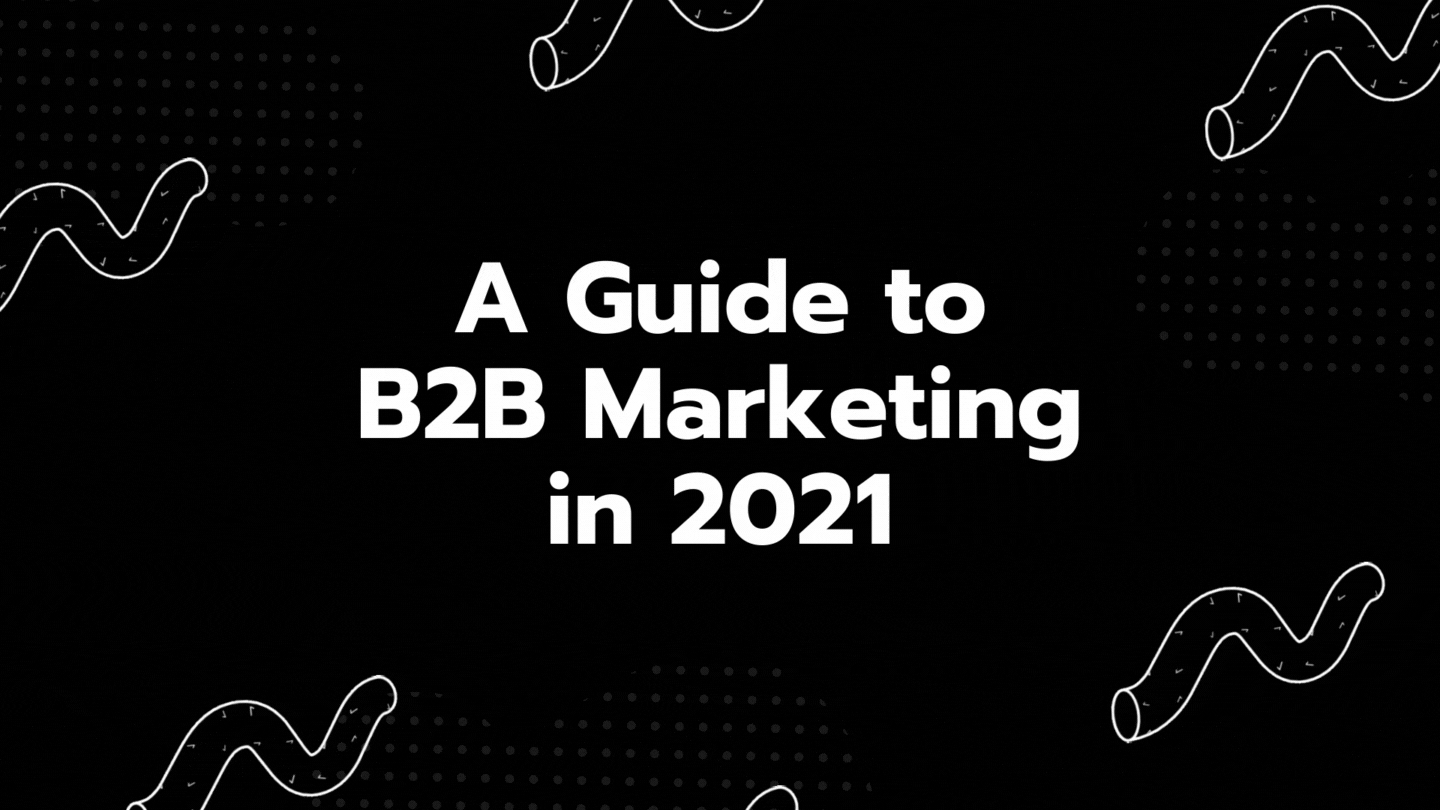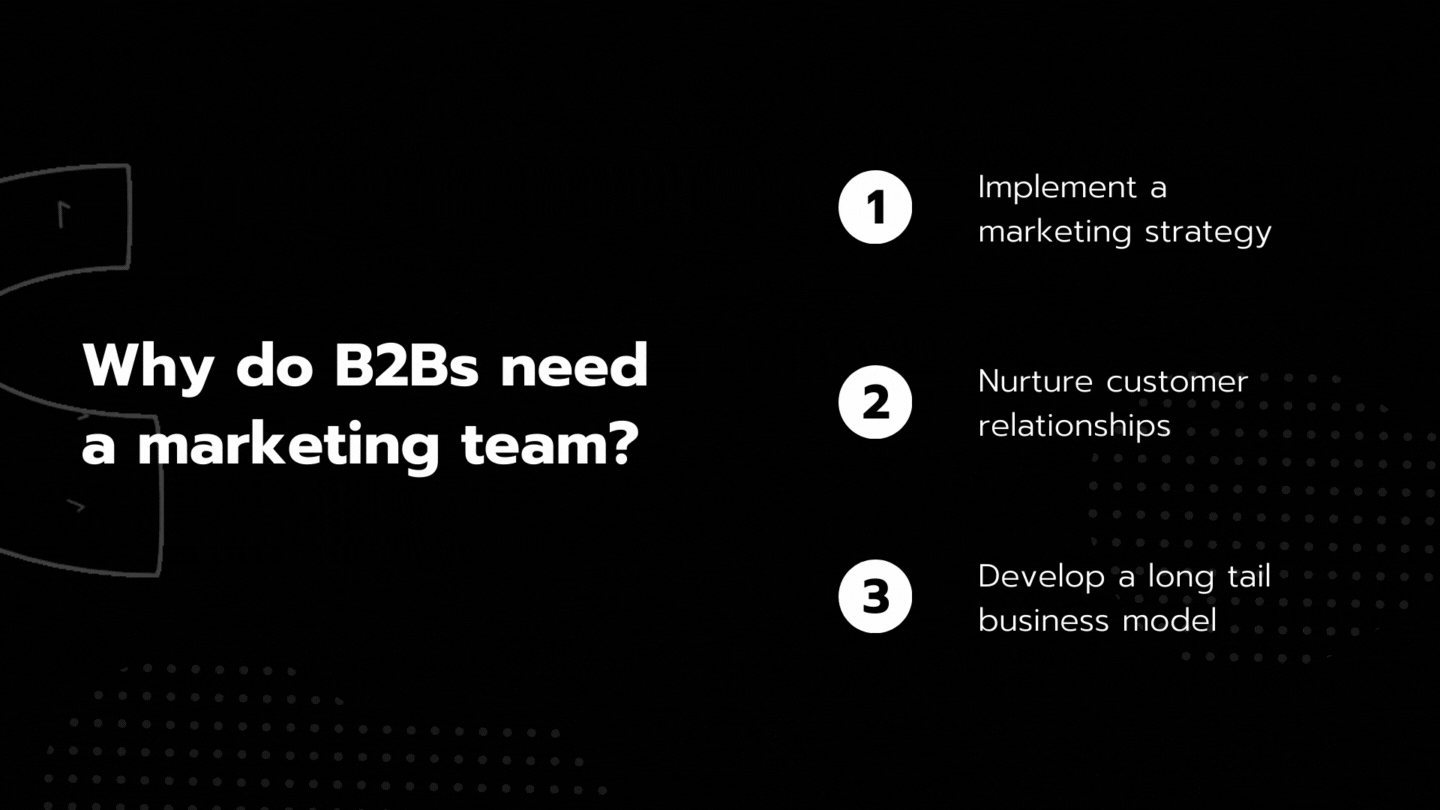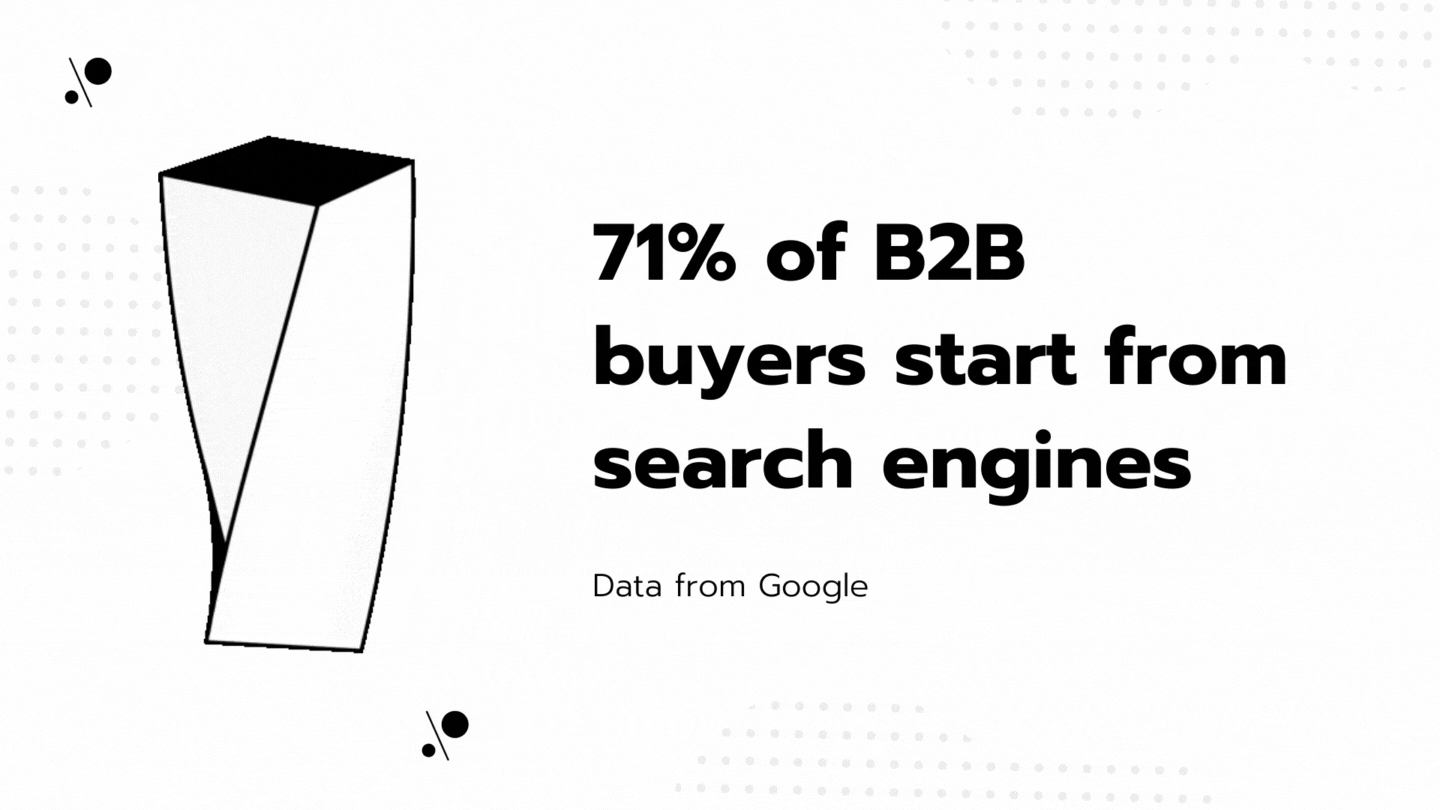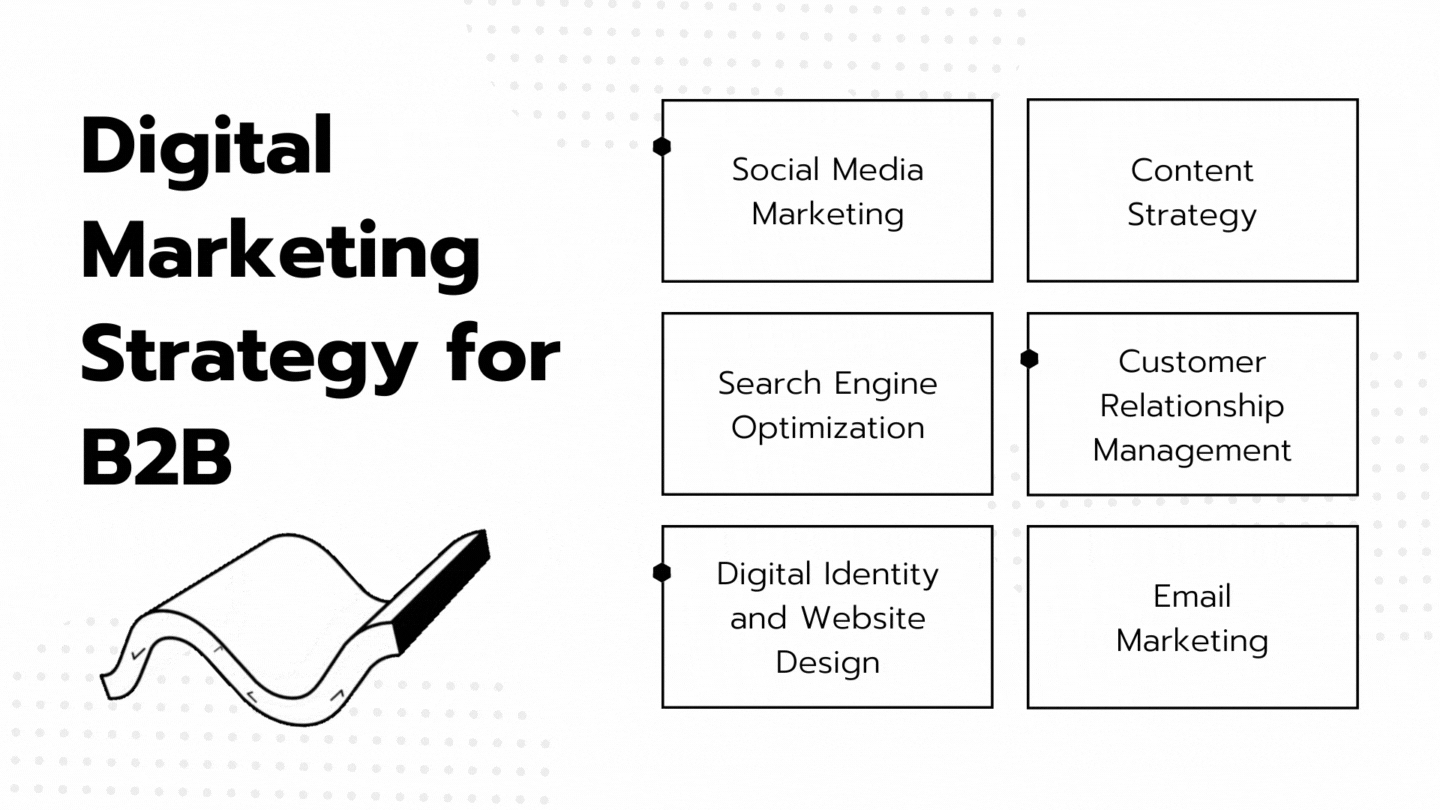Why B2B Companies Need Digital Marketing
Do B2B companies need a marketing team? How does it help with sales?
Many companies expect their sales team to cover the entire customer journey, from lead generation to closing deals. There’s also conflicting advice on whether to focus on the beginning or end of the sales funnel; either monitor sales channels to develop customer relationships, or develop a marketing strategy to attract potential customers.
In truth, businesses should be optimizing their sales funnel end-to-end — but it should not be the responsibility of a single team. So, what’s the difference between sales and marketing?
Sales interact directly with potential customers and turn them into deals while marketing attracts potential customers to your product or service. Marketing stimulates customer interest while Sales uses this interest to develop a relationship with the customer.
Companies should take the time to differentiate between sales and marketing responsibilities and invest in their digital marketing strategy. A successful marketing strategy is foundational for generating cash flow and revenue.
Finding the right marketing strategy
Developing a marketing strategy from scratch is difficult. A successful strategy nurtures customers through the sales funnel until the sales team takes over at the point of transaction.
Who is the buyer? How should you approach them? What do they expect from your business? Answering these questions requires data and analytics and a plan to optimize content, PR events, and marketing websites to enhance your brand presence.
Such responsibilities can be challenging even with an in-house marketing team. Do not be opposed to relying on an external marketing agency to develop a personalized strategy. Working with marketing experts outside of your field of business can help you identify the gaps in your marketing efforts.
Nurturing customer relationships
A common marketing strategy is to increase brand awareness to promote sales. This is better than having no marketing strategy, failing to connect with potential leads, and spending more time finding leads than closing deals. At the same time, increasing leads is not always a good use of resources.
An ideal strategy increases brand awareness to attract higher quality leads — not more. Finding higher quality leads speeds up the customer journey through the sales funnel. Marketing can curate a list of vetted clients and Sales can spend more time with individual leads and close more deals.
How should B2B companies approach marketing?
1. Figure out your strategy
If you don’t have a strategy, create one. Customize the plan to fit business goals and facilitate collaboration between the Marketing, Sales, and Customer Service teams.
Q: How can my marketing strategy better serve and upsell my existing customers while attracting new more business?
Marketing strategies are forever a work-in-progress. Strategies that brought in quality leads one month may not work the following month. The best strategy is to set goals and then experiment with different marketing activities and advertising budgets. Continual experimentation and careful monitoring can create quantifiable improvement and revenue growth.
2. Advertise online
Pay-per-click (PPC) advertising is instrumental in lead acquisition and a common way for businesses to appear on search engines and social networks. A successful PPC strategy helps companies reach far corners of the Internet and interact with unconventional yet quality customers.
Use a CRM such as HubSpot to keep track of and contact new leads throughout the acquisition process. Expanding into new markets by investing in PPC strategy and CRM can generate considerable revenue increases month-to-month or even long-term with the potential of lifetime customers.
3. Harness the power of Email Marketing
The power of email marketing lies in its flexibility. You can send anything in an email — from industry-specific updates, product promotions, to company newsletters. Email marketing allows businesses to enhance brand relevance and develop brand loyalty by interacting with customers straight from their inboxes.
4. Define your digital identity with a website
Do not underestimate the power of a link. A well-designed corporate website is essentially a 24/7 online salesperson. There likely multiple decision-makers involved in the B2B sales process. A successful website makes a good first impression and continues to inform and impress at every point of the decision-making process.
Corporate website case studies
-
MOXA — Optimizing the product portfolio of a global leader in IIOT
-
PARFAITE — Defining a digital identity for a leading component manufacturer to capture the aerospace market
-
TSRC — Digital transformation to elevate a local leader in synthetic rubber to the international stage
-
Everlight Chemical — Building a transnational image for Taiwan’s leading B2B chemicals supplier
5. Optimize for search-ability
Ranking higher on search engines builds brand awareness and credibility. Optimizing search ranking should be a part of every B2B marketing strategy. According to Google, about 71% of B2B buyers begin their research from a search engine but it takes an average of 12 searches they can find specific company websites.
The first step in improving your rank is to know how you rank. Use online diagnostic tools to understand how you compare to competitors. SEO takes patience and research but can deliver great results when paired with PPC.
6. Be active on socials
Social media is not just for B2C’s. Start by crafting a honest LinkedIn profile and curate Facebook, Twitter, and Instagram feeds if necessary.
While your strategy should be industry-specific, social media is just another channel to strengthen brand presence and interact with potential leads. Some use cases include:
-
Promoting products and broadcasting discounts or offers
-
Creating conversation starters with potential customers
-
Improving brand awareness which can help with SEO, finding suitable distributors, or building a professional persona
-
Positioning yourself as experts in the field
-
Opening up a communication channel to improve customer service and monitor your brand
-
Expanding your network and meet potential collaborators with mutual business interests
7. Embrace the process
Once again, your marketing strategy is a work in progress. As your business grows and priorities change, so will your marketing strategy. Post-pandemic marketing will rely heavily on digital. Digital marketing strategy and streamlined CRM are paramount to the success of modern B2B companies.
Yes, you need a marketing team.
Marketing teams are a big investment that can have low returns when run poorly. But without a marketing team, companies will lose out on potential business from the beginning of their sales pipeline.
Following erratic consumer behavior requires consistent market research and operational updates and automation to fulfill customer needs. Finding and qualifying quality leads — the cornerstone of a productive sales funnel — is difficult without a dedicated marketing team.
Whether you decide to build an in-house team or hire an agency, marketing should not be a second thought.
